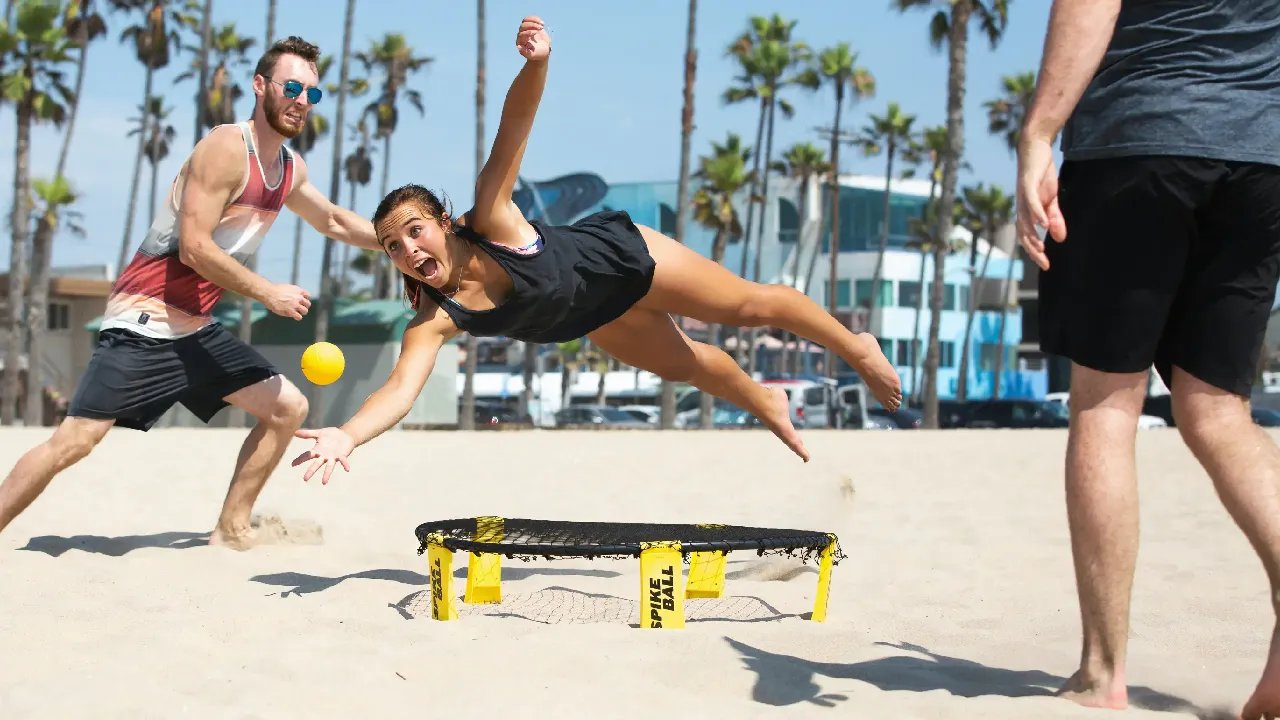Spikeball Scoring Rules Guide: Tips on Scoring, Penalties & Winning Strategies
Spikeball, also known as Roundnet, is an exciting sport that combines elements of volleyball and four-square. Understanding the scoring rules and penalties is crucial to playing the game fairly and effectively. Whether you're a beginner or an experienced player, knowing how points are awarded and what penalties to avoid can significantly improve your performance.
Spikeball Point Award System
1. Rally Scoring System
Spikeball follows a rally-scoring format, meaning that a point is awarded on every rally, regardless of which team served. Unlike side-out scoring systems in other sports, both the serving and receiving teams have the opportunity to score. We also have written a detailed guide about the spikeball serve rules, make sure to go through it!
2. When is a Point Awarded?
A team earns a point when:
The opposing team fails to return the ball onto the net within three touches.
The ball hits the ground before being returned.
The ball bounces twice on the net before being played.
The ball hits the rim of the net during play (except on a serve).
The ball rolls across the net instead of bouncing off it.
The opposing team commits a penalty (more on this below).
3. Winning the Game
Games are typically played to 11, 15, or 21 points, depending on tournament rules or casual play agreements.
A team must win by at least two points.
Teams switch serving positions every five points to ensure fair play.
Spikeball Penalties
In Spikeball, certain actions lead to penalties, resulting in a point for the opposing team. Understanding these violations will help you avoid unnecessary errors and improve your gameplay.
1. Serving Violations
Foot Fault: The server must stand at least six feet away from the net. If they step closer, it's a fault.
Double Fault: Each player gets two serving attempts. If both serves are invalid (e.g., rim hits or foot faults), the opposing team gets a point.
High Toss Violation: A serve must be tossed at a reasonable height. A toss too high or erratic can be considered a fault.
2. Hitting and Contact Penalties
Carrying or Holding the Ball: The ball must be hit cleanly; scooping or lifting the ball is not allowed.
Double Touch Violation: A player cannot hit the ball twice in succession.
Pocket Fault: If the ball hits the inside rim (pocket) and changes direction, it is considered a fault unless it happens on a serve.
Missed Net Hit: If a player hits the ball but it does not touch the net, the other team is awarded a point.
3. Obstruction and Interference
Defensive Interference: Defenders must allow offensive players a clear path to play the ball. Blocking their movement results in a replay or a point for the offensive team.
Hindering a Return: If a player accidentally or intentionally disrupts the opposing team’s return, the point may be replayed.
4. Illegal Ball Contact
Out-of-Bounds Play: The ball must be played within the designated play area. If a player hits the ball out of bounds, their opponents score a point.
Intentional Ball Manipulation: Any intentional attempt to redirect the ball unfairly (e.g., excessive spin, scooping, or controlled carries) leads to a penalty.
5. Unsportsmanlike Conduct
Excessive Arguing: Players must respect referees and opponents. Repeated disputes may lead to penalties or disqualification in tournaments.
Rough Play or Physical Contact: Spikeball is a non-contact sport. Any form of aggressive physical contact may lead to disqualification.
Delay of Game: Excessive stalling or delaying play on purpose results in a warning, followed by a point penalty.
How to Avoid Common Penalties in Spikeball
Practice Serves: Avoid foot faults and rim hits by perfecting your serve technique.
Improve Ball Control: Work on clean hits and avoid carrying or double-touching the ball.
Stay Alert on Defense: Always give the offensive team enough space to make their play.
Respect Fair Play: Play with honesty and uphold sportsmanship rules to avoid unnecessary penalties.
Final Thought
Mastering Spikeball scoring rules and penalties not only makes the game fair but also enhances the overall experience for all players. Whether you're competing at a high level or just enjoying a casual match, knowing the point award system and avoiding unnecessary mistakes can give you a serious advantage. By staying mindful of serving rules, clean ball contact, and fair play, you’ll become a more strategic and respected player. So next time you step onto the court, play smart, stay sharp, and most importantly (have fun)!
Follow PortaCourts for more amazing updates!
COMMENTS
Sort by :





Leave A Comment